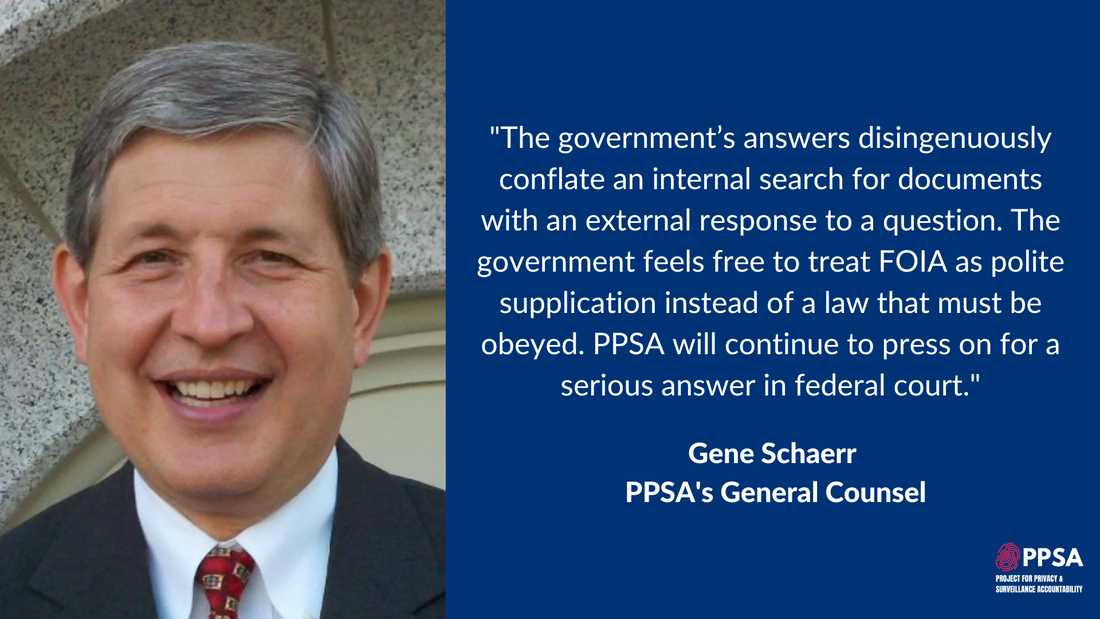Agencies Avoid Answering Questions About the Purchase of Private Information of Members of CongressSince the mid-1960s, the Freedom of Information Act (FOIA) has allowed American citizens and civil liberties organizations to obtain unclassified documents from federal agencies, shedding light on official actions and policies. In recent years, however, the government has devised many creative ways to stall, obfuscate, and outright withhold answers to FOIA requests, while seeming to be as responsive as possible. Cato Institute scholar Patrick Eddington calls these tactics “constructive denial.”
For over two years, Cato filed FOIA requests to obtain FBI records on militia groups of the left and the right, including the white supremacist Patriot Front. “Groups like the Patriot Front,” Eddington writes in The Hill, “are, in the view of most Americans, a moral and political blight that the country would be far better off without. At the same time, the protection of offensive ideas and speech are at the heart of the purpose of the First Amendment.” Thus, Cato sought records to better understand the threat posed by these groups and the nature of the government’s response. In defiance of FOIA’s requirement that the FBI send the requested documents to the requester himself, the FBI replied to Cato that it would eventually file the documents on an FBI website. “You will be notified when releases are available.” In other words, buzz off. Constructive denial can be seen in another form after PPSA filed suit against the National Security Agency, the CIA, the Department of Justice and FBI, and the Office of the Director of National Intelligence in June to compel the release of records pertaining to the possible purchase of the personal information of more than 100 current and former Members of the House and Senate Judiciary Committees from private data brokers. This is understandably a sensitive question, given that current and former judiciary committee lawmakers include Chairman Jerrold Nadler, Ranking Member Jim Jordan, Chairman Dick Durbin, Ranking Member Chuck Grassley, as well as Vice President Kamala Harris and Florida Gov. Ron DeSantis. Still, it would be a matter of public interest – not to mention to these legislators themselves – if the government were buying up their personal information. Such an act could yield leverage for executive branch agencies to bully leading Members of Congress, subtly undermining democracy. The agencies’ response to PPSA’s FOIA request over summer 2021 was to issue Glomar responses, a judicially invented doctrine that neither confirms nor denies that such records exist. Now that PPSA has sued to enforce its request, these agencies have come back with an answer that doubles down on a government theory that it would be too dangerous to national security for these agencies to even search for such documents. At the same time, government responses strike a tone of wanting to be as cooperative as possible. One choice example: PPSA asserted a “right of prompt access to requested records under the law.” The National Security Agency responded: “To the extent that a response is required, Defendant NSA denies the allegation, including the fact that NSA has wrongfully withheld records.” This is a construction worthy of Joseph Heller’s Catch-22. Gene Schaerr, PPSA general counsel, responds: “The government’s answers disingenuously conflate an internal search for documents with an external response to a question. The government feels free to treat FOIA as polite supplication instead of a law that must be obeyed. PPSA will continue to press on for a serious answer in federal court.” In the meantime, expect the government to come up with many new forms of constructive denial. Comments are closed.
|
Categories
All
|


 RSS Feed
RSS Feed